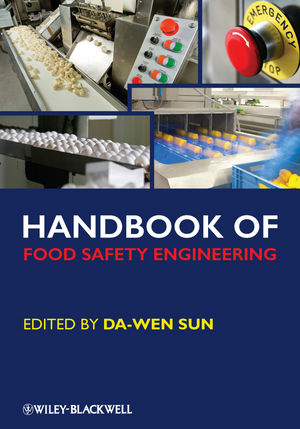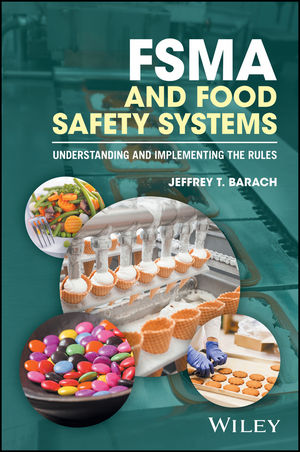Vermont’s New Genetic Engineering Labeling Law: Hold the Celebration

Advocates of genetic engineering disclosure are enthusiastically but perhaps prematurely celebrating Vermont’s anticipated May 8 enactment of the nation’s first operative labeling disclosure requirement for foods that are themselves, or by ingredient, the product of a genome modified by human intervention. Vermont’s law also would bar the use of the word “natural” or comparable “natural” descriptors on genetically engineered products. The Vermont law is scheduled to become effective on July 1, 2016, but for important political and legal reasons, this is unlikely to happen.
On the political front, the Vermont law should energize the push for preemptive federal bioengineered organism legislation. Congress is considering H.R. 4432, a bipartisan bioengineering bill launched with broad food industry support by Rep. Pompeo (R-Kansas) on April 9, 2014. Rep. Pompeo’s bill would dispense with confusing disclosure requirements and focus instead on threshold U.S. Food and Drug Administration (FDA) review of the safety of bioengineered organisms; require the disclosure of differences, if any, between bioengineered foods and comparable, unmodified foods that might affect safety or nutritional quality; limit claims that foods are not bio-engineered to closely controlled ingredient chains; and expressly bar FDA or states from requiring the type of genetically engineered labeling disclosure mandated by Vermont. H.R. 4432 also would require FDA to define the term “natural” and bind the states to that definition. While the success of any legislative initiative, particularly one that is likely to be opposed by consumer groups and economically motivated organic farming interests, is always hard to predict, the specter that the food industry will otherwise be subjected to a costly hodge podge of state legislative requirements threatening the orderly national marketing of food products will certainly throw fuel on the legislative fire.
On the legal side, there are powerful arguments why the Vermont law infringes upon food manufacturers’ freedom of speech rights, and it is virtually certain that, absent Congressional action, manufacturers will seek to protect their interests in court. The Supreme Court’s growing interest in safeguarding the constitutional rights of commercial speakers does not bode well for Vermont, and legal challenges to the Vermont law may be hard to defeat. First, the Supreme Court has reinforced the principle, particularly in its recent Sorrell v. IMS Health decision, that freedom of speech includes the right not to disseminate government-mandated messages unless the government can demonstrate that the required disclosure is carefully tailored to advance a substantial state interest that cannot be advanced less intrusively. Second, while earlier decisions on commercial speech suggested that sellers could be required to communicate virtually any information that consumers might consider useful in making purchasing decisions, more recent cases have held that this lenient standard applies only to factual disclosures that are necessary to prevent sellers from deceiving or misleading consumers.
The Vermont law is likely to fail both of these tests. Because the Vermont law itself admits that there is no scientific evidence that genetically engineered products are harmful or lack nutritional value, the only interest advanced by the Vermont law is a form of speculative risk avoidance that the state could effect by undertaking its own public information campaign at its own expense, or that interested consumers could independently satisfy by, for example, seeking out products that are labeled “organic.” Moreover, even if Vermont’s “genetically engineered” disclosure requirement were considered strictly factual in nature—a conclusion that is doubtful at best—it is not directed at correcting an otherwise deceptive or misleading statement, because there is no evidence that genetically engineered products are harming consumers in any way. Similarly, Vermont’s prohibition on the use of the term “natural” to describe genetically engineered products does not regulate misleading statements, but advances a highly subjective, government-endorsed opinion that genomic modifications caused by human intervention in the genome, as opposed to similar or identical modifications that arise from random mutation or selective cross-breeding, are not “natural.” As FDA has said, the term “natural” has no settled meaning, and any attempt to devise a comprehensive definition would be a difficult, resource-intensive task whose outcome inevitably would be value-dependent rather than scientifically verifiable. Until a settled, scientifically valid definition of “natural” is available, sellers should not be precluded from expressing their opinion that foods derived from living organisms are, in fact, “natural” in important aspects.
Third, in its Sorrell decision, the Supreme Court held that speech restrictions that target only a specific set of speakers or a specific subject impose a higher burden of constitutional justification on the government. Vermont’s law is unlikely to clear this hurdle either, because the law contains sweeping exemptions from its disclosure requirements for restaurants, wine and liquor bottlers, and vendors of meat derived from animals fed with genetically engineered products from its disclosure requirements. To the extent that the state purports to have any scientific basis for its mandates, these politically expedient carve-outs are both arbitrary and incoherent, and further weaken the state’s First Amendment defenses.
The Vermont law and similar genetic engineering disclosure efforts across the country perpetuate a growing trend in which lawmakers have attempted to foist onerous mandatory disclosures on private manufacturers in an effort to disseminate government-preferred messages that are divorced from traditional regulatory concerns about market fraud and deception, and elevate fear of the unknown above rational scientific evaluation. The regulation embraced by the Vermont law is pushed by elite interests and organic farming enterprises, because the former can afford the extra cost of buying organic and the latter can only benefit from state endorsement of the unproven superiority of their products. Moreover, the imposition of labeling requirements in the absence of any demonstrated threat to human health or safety promises to line the pockets of the plaintiff’s bar by effectively defining material injury out of the liability equation. Fortunately, as far as the Vermont law is concerned, political and legal reality are poised to align with rational science to overcome Vermont’s ill-considered attempt to tip the playing field in the public debate over genetically engineered foods.
 Bert W. Rein, a founding partner of Wiley Rein LLP in Washington, D.C., is widely recognized as a leading food and drug, antitrust and commercial litigator. He can be reached at 202.719.7080.
Bert W. Rein, a founding partner of Wiley Rein LLP in Washington, D.C., is widely recognized as a leading food and drug, antitrust and commercial litigator. He can be reached at 202.719.7080.
 John E. Barry, a litigation and appellate partner at Wiley Rein LLP, has 25 years of experience representing clients in complex civil litigation matters and appeals before federal and state courts and in arbitration proceedings. He can be reached at 202.719.7239.
John E. Barry, a litigation and appellate partner at Wiley Rein LLP, has 25 years of experience representing clients in complex civil litigation matters and appeals before federal and state courts and in arbitration proceedings. He can be reached at 202.719.7239.
>
Looking for a reprint of this article?
From high-res PDFs to custom plaques, order your copy today!








